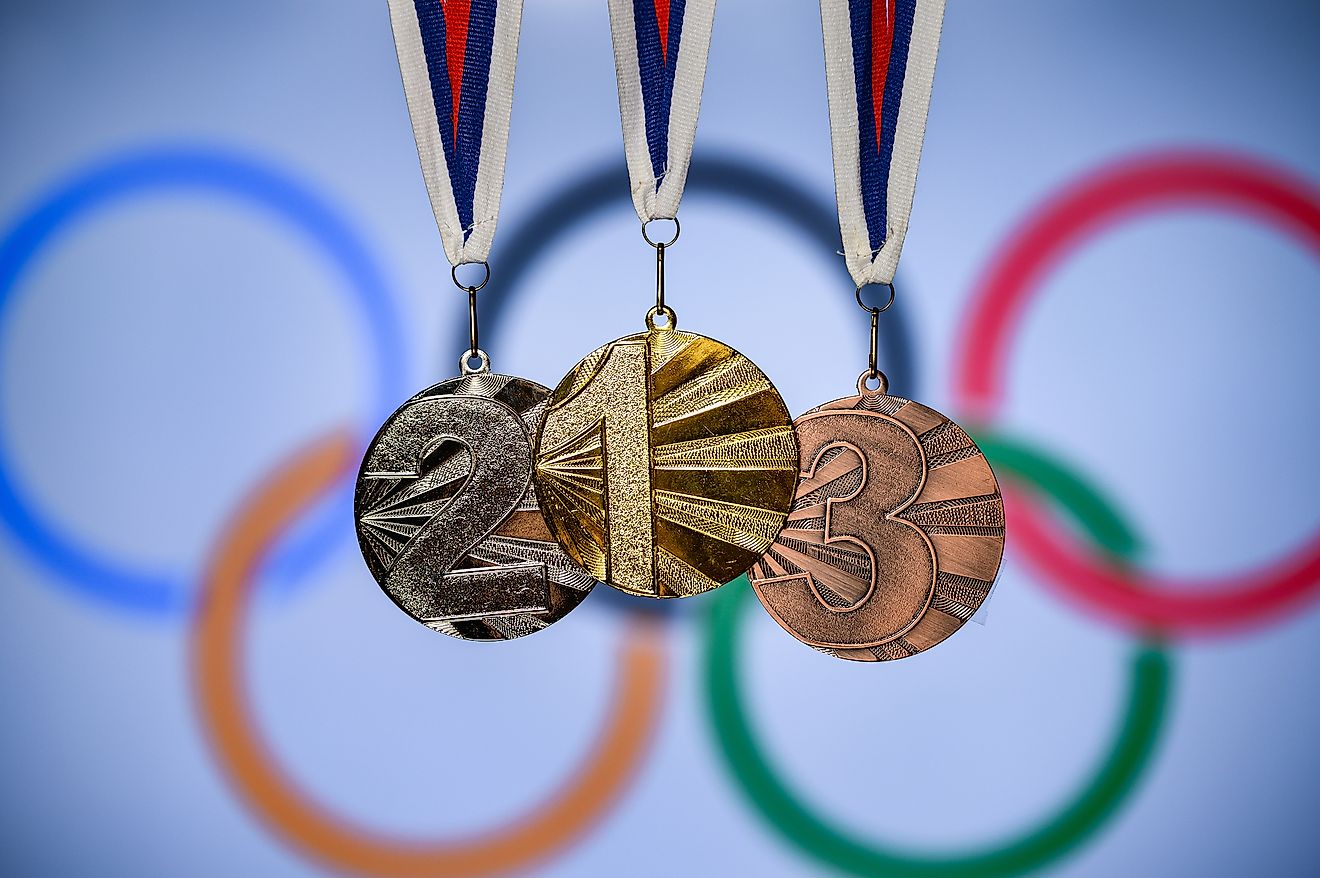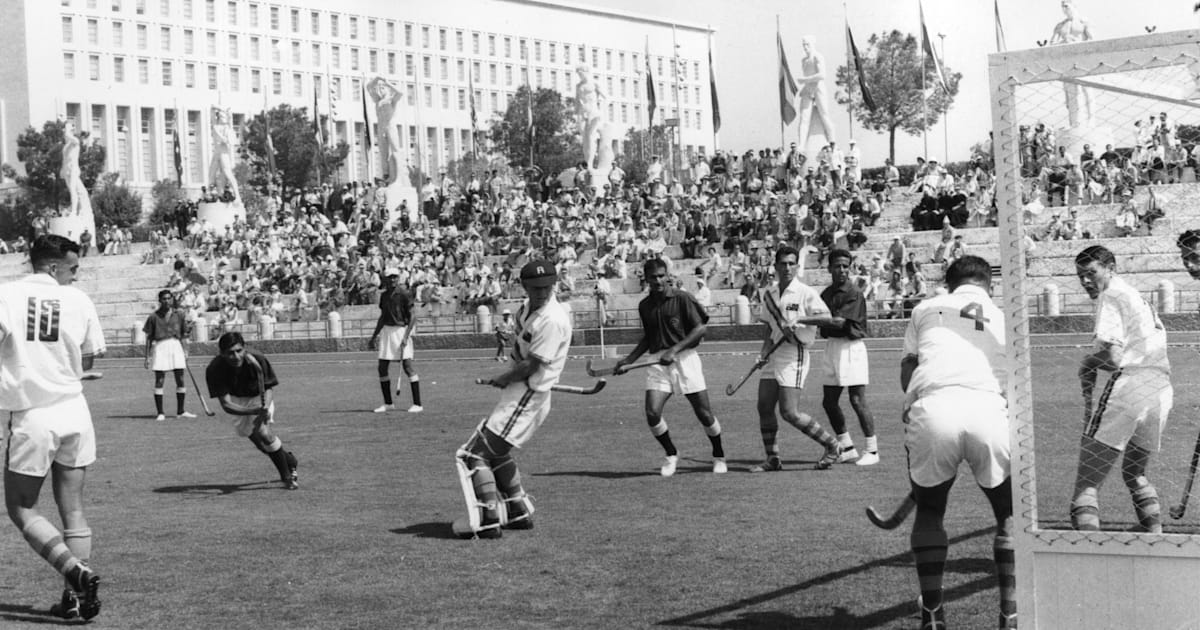Historical Overview of Pakistan’s Olympic Performance: Pakistan Olympic Medals

Pakistan’s journey in the Olympic Games has been a rollercoaster ride of triumphs and challenges, marked by moments of glory and periods of struggle. From its debut in the 1948 London Olympics, Pakistan has participated in every Summer Games, showcasing its sporting prowess on the global stage.
Pakistan’s Olympic Medal Count: A Tale of Two Halves
Pakistan’s Olympic medal count has seen a significant shift over time. The early years were marked by a steady stream of medals, primarily in hockey, with a golden era in the 1960s and 1970s. However, the medal count has dwindled in recent decades, prompting introspection and a renewed focus on developing a robust sporting infrastructure.
- Pakistan’s first Olympic gold medal came in 1956 in the Melbourne Games, a testament to the nation’s early dominance in hockey.
- The 1960s and 1970s saw a golden age for Pakistan hockey, with three consecutive Olympic gold medals (1960, 1964, 1968) and a silver medal in 1972.
- Since the 1980s, Pakistan has struggled to replicate its earlier success in hockey, with only one bronze medal in 1992.
- The decline in hockey performance is attributed to a combination of factors, including a lack of investment in grassroots development, inadequate coaching infrastructure, and a decline in the overall quality of players.
Prominent Pakistani Olympians: Legends in the Making
Pakistan has produced a galaxy of Olympic stars who have etched their names in the annals of sporting history. Their achievements have not only brought pride to the nation but have also inspired generations of athletes.
- Shahbaz Ahmed (Hockey): A legend of the game, Shahbaz Ahmed captained Pakistan to its first Olympic gold medal in 1956 and played a pivotal role in the team’s subsequent triumphs.
- Mushtaq Ahmed (Hockey): Known for his exceptional dribbling skills and goal-scoring prowess, Mushtaq Ahmed was a key member of Pakistan’s gold-winning teams in 1960, 1964, and 1968.
- Samiullah (Hockey): A versatile and skillful player, Samiullah was a crucial part of Pakistan’s Olympic hockey team, contributing significantly to the team’s success in the 1960s and 1970s.
- Abdul Rashid (Hockey): A legendary goalkeeper, Abdul Rashid was known for his agility, reflexes, and ability to make crucial saves. He was an integral part of Pakistan’s hockey team in the 1960s and 1970s.
Pakistan’s Olympic Future: A Path Forward
Despite the challenges, Pakistan remains optimistic about its Olympic future. The nation is taking steps to revitalize its sporting landscape, focusing on developing a sustainable sports ecosystem. This includes investing in grassroots development, providing quality coaching, and creating opportunities for athletes to compete at the international level.
Analysis of Pakistan’s Medal-Winning Sports

Pakistan’s Olympic journey has been a rollercoaster ride, with moments of glory interspersed with periods of frustration. While the country has consistently performed well in certain sports, there’s room for improvement in others. Let’s delve into the details.
Pakistan’s Consistent Medal-Winning Sports
Pakistan’s Olympic medal haul has been largely driven by a few key sports. These sports have consistently produced medalists, showcasing the country’s athletic prowess.
- Hockey: The national sport of Pakistan has been a source of pride for the country, with a remarkable record at the Olympics. From the first gold medal in 1960 to the last one in 1984, Pakistan’s hockey team has consistently dominated the world stage. Their success can be attributed to a combination of factors: a strong domestic league, a passionate fan base, and a history of producing world-class players.
- Field Hockey: This sport has been a cornerstone of Pakistan’s Olympic performance, consistently delivering medals. Pakistan’s dominance in field hockey can be attributed to several factors: a rich tradition of the sport, dedicated coaching, and a strong domestic league.
- Weightlifting: This sport has been a consistent source of medals for Pakistan. The country’s success in weightlifting is due to a combination of factors, including a strong tradition of the sport, dedicated coaching, and a commitment to training.
- Wrestling: Pakistan’s wrestlers have consistently made their mark at the Olympics, showcasing their strength and agility. The country’s success in wrestling is due to a combination of factors: a strong tradition of the sport, dedicated coaching, and a commitment to training.
Comparative Analysis of Pakistan’s Olympic Performance
While Pakistan has achieved success in some sports, there are areas where improvement is needed.
- Athletics: Despite a strong domestic track and field scene, Pakistan has struggled to replicate its success at the Olympics. The lack of international exposure and limited access to advanced training facilities have been cited as contributing factors.
- Swimming: Pakistan has yet to win an Olympic medal in swimming. Limited access to training facilities and a lack of financial support have been identified as major hurdles.
- Gymnastics: While Pakistan has made strides in gymnastics, it has yet to achieve Olympic success. The lack of a structured training program and limited access to qualified coaches have been cited as major challenges.
Pakistan’s Medal-Winning Performances in Each Sport
| Year | Sport | Event | Athlete | Medal |
|---|---|---|---|---|
| 1960 | Field Hockey | Men’s Tournament | Pakistan Team | Gold |
| 1964 | Field Hockey | Men’s Tournament | Pakistan Team | Gold |
| 1968 | Field Hockey | Men’s Tournament | Pakistan Team | Gold |
| 1972 | Field Hockey | Men’s Tournament | Pakistan Team | Gold |
| 1984 | Field Hockey | Men’s Tournament | Pakistan Team | Gold |
| 1956 | Weightlifting | Featherweight | Muhammad Saleem | Silver |
| 1960 | Weightlifting | Featherweight | Muhammad Saleem | Silver |
| 1964 | Weightlifting | Featherweight | Muhammad Saleem | Bronze |
| 1968 | Weightlifting | Featherweight | Muhammad Saleem | Silver |
| 1972 | Weightlifting | Featherweight | Muhammad Saleem | Silver |
Factors Influencing Pakistan’s Olympic Success
Pakistan’s journey in the Olympics has been a rollercoaster ride, filled with moments of glory and challenges. Understanding the factors that influence their performance is crucial to charting a course towards greater success in the future.
Government Support and Infrastructure Development
The role of government support in shaping Pakistan’s Olympic performance is undeniable. A strong government commitment to sports development translates into increased funding for training facilities, coaching programs, and athlete welfare. For example, the establishment of the Pakistan Sports Board (PSB) in 1971 aimed to promote and develop sports across the country. This includes providing financial support, infrastructure, and resources for athletes to train and compete at the highest level. However, Pakistan’s Olympic journey has been marked by inconsistent government support. Periods of strong backing have been followed by periods of neglect, creating a cycle of uncertainty and hindering long-term planning. A consistent and well-structured government strategy is essential for nurturing a thriving sports ecosystem.
Social and Cultural Factors, Pakistan olympic medals
Social and cultural factors play a significant role in shaping the participation and success of Pakistani athletes in international competitions. In Pakistan, cricket holds a dominant position in the sporting landscape, overshadowing other sports and sometimes hindering the development of other disciplines. The emphasis on cricket can create challenges for other sports, making it difficult to attract and retain talented athletes. Furthermore, societal norms and traditional expectations can impact the participation of women in sports, limiting their opportunities and potential. However, there are encouraging signs of change. The rise of women athletes in sports like squash, badminton, and hockey is a testament to the growing acceptance of women’s participation in sports.
International Partnerships and Collaborations
International partnerships and collaborations have played a crucial role in elevating Pakistan’s Olympic performance. Collaborations with international organizations like the International Olympic Committee (IOC) and the Olympic Solidarity program provide valuable resources, expertise, and training opportunities. These partnerships have helped Pakistani athletes gain access to world-class coaching, training facilities, and exposure to international competitions. For instance, the IOC’s Olympic Solidarity program has provided financial support and technical assistance to Pakistan’s National Olympic Committee, contributing to the development of sports infrastructure and athlete training programs. However, building stronger and more sustainable partnerships with international organizations is crucial to further enhance Pakistan’s Olympic capabilities.
Pakistan olympic medals – Pakistan’s Olympic medal count, a testament to the nation’s athletic prowess, often overshadows the individual stories of its athletes. But behind these triumphs, there are personal journeys, much like the one taken by Hunter Schafer, whose recent breakup with her boyfriend, as reported here , has been a topic of discussion.
Just as Schafer navigates the complexities of her personal life, Pakistan’s Olympians, too, face their own battles, both on and off the field, before they stand on the podium, their national anthem playing in the background.
The weight of Pakistan’s Olympic medals, often meager compared to global giants, carries a burden of hope and a whisper of what might be. Perhaps it’s a reflection of the nation’s internal struggles, or perhaps it’s a testament to the resilience of its athletes.
The same could be said about the influence of hunter schafer height in the world of fashion and entertainment, a seemingly superficial measure that carries a surprising weight in shaping perceptions. And just as a nation strives for Olympic glory, individuals strive for recognition, both for their accomplishments and for their physical presence, a silent language that speaks volumes in a world obsessed with appearances.

